Database Administrators (DBAs) are the backbone of data management in any organization. They ensure that databases run efficiently and securely, providing critical support for business operations and decision-making.
Key skills for a DBA include proficiency in database languages like SQL, understanding of database management systems (DBMS) such as Oracle or MySQL, and abilities in problem-solving and strategic planning.
Candidates can write these abilities in their resumes, but you can’t verify them without on-the-job Database Administrator skill tests.
In this post, we will explore 7 essential Database Administrator skills, 7 secondary skills and how to assess them so you can make informed hiring decisions.
Table of contents
7 fundamental Database Administrator skills and traits
The best skills for Database Administrators include SQL Proficiency, Database Security, Backup Management, Performance Tuning, Data Modeling, Troubleshooting and Replication.
Let’s dive into the details by examining the 7 essential skills of a Database Administrator.
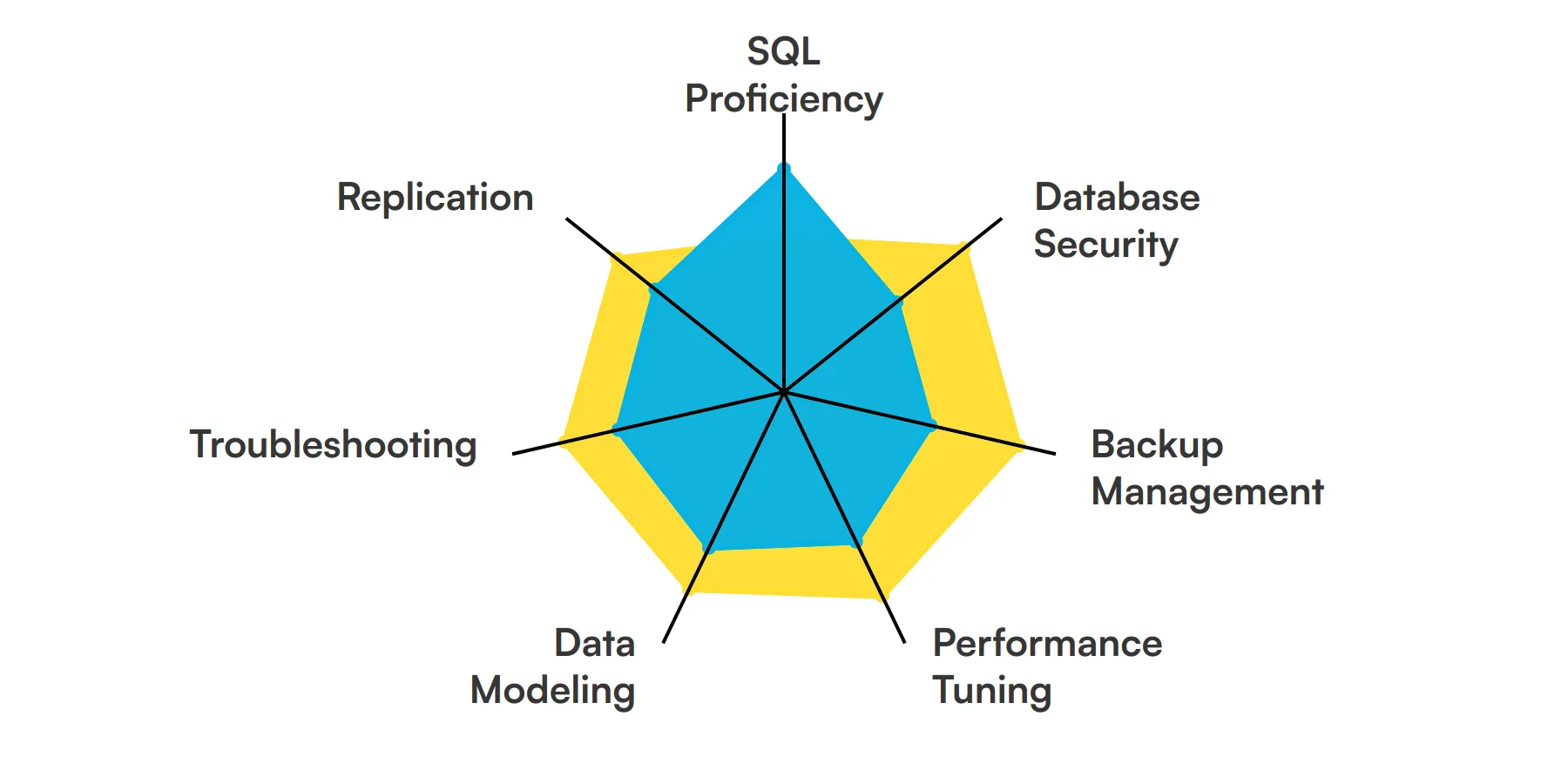
SQL Proficiency
A Database Administrator must be adept in SQL, the standard language for relational database management systems. SQL skills allow the administrator to query the database, update data, manage database structures, and write complex scripts that help in maintaining the health and security of the database systems.
For more insights, check out our guide to writing a SQL Developer Job Description.
Database Security
Ensuring the security of the database is paramount for a Database Administrator. This skill involves setting up firewalls, managing access controls, and regularly updating the database’s security protocols to protect sensitive data from unauthorized access and breaches.
Backup Management
Regular backups are crucial to prevent data loss. A Database Administrator must know how to set up and monitor backup protocols, perform restorations, and ensure that backups are effective and can be relied upon in case of data corruption or loss.
Performance Tuning
The role requires expertise in optimizing database performance. This includes analyzing database queries and hardware resources, making adjustments to enhance efficiency, and ensuring that the database operates at optimal speed and capacity.
Data Modeling
Data modeling is essential for structuring database effectively. It involves designing data models that define the relationship between different data elements and structures. The Database Administrator uses these models to ensure data consistency and to streamline the integration of new data.
Check out our guide for a comprehensive list of interview questions.
Troubleshooting
Database Administrators must quickly identify and resolve issues that arise with the database systems. This skill is critical to minimize downtime and ensure that database operations are not adversely affected by technical problems.
Replication
Knowledge of replication methods is important for ensuring data availability and disaster recovery. The Database Administrator sets up and manages replication processes to create copies of data across different databases or database servers.
For more insights, check out our guide to writing a Database Administrator (DBA) Job Description.
7 secondary Database Administrator skills and traits
The best skills for Database Administrators include Scripting, Cloud Services, Version Control, System Administration, Networking Basics, Project Management and Compliance Knowledge.
Let’s dive into the details by examining the 7 secondary skills of a Database Administrator.
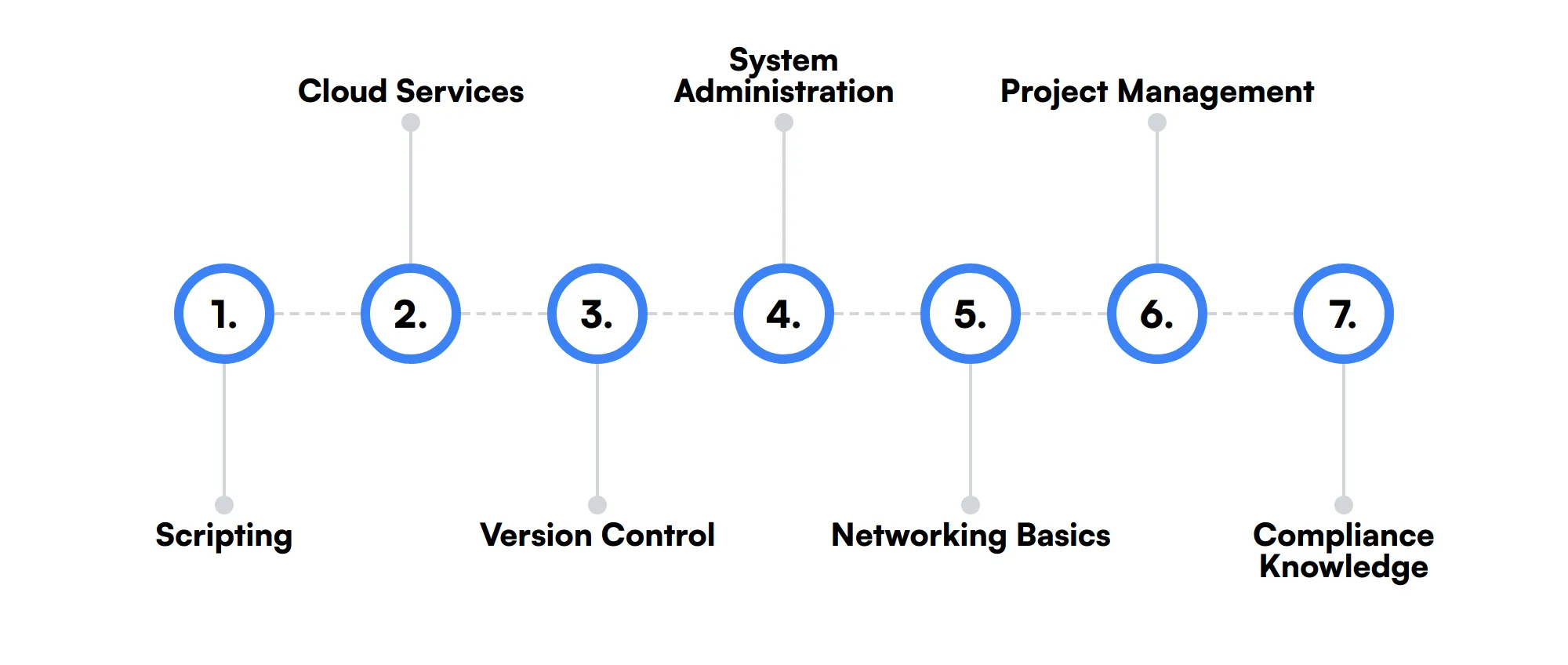
Scripting
Scripting skills such as using PowerShell, Bash, or Python help automate routine tasks, manage data transformations, and streamline database administration processes.
Cloud Services
Familiarity with cloud platforms like AWS, Azure, or Google Cloud is beneficial as many databases are now hosted on these services. Understanding cloud services enables the Database Administrator to manage and scale databases in the cloud efficiently.
Version Control
Using version control systems such as Git helps in tracking changes to the database scripts and schemas, facilitating better collaboration and error tracking in database management.
System Administration
Basic knowledge of system administration is useful for managing the operating systems and hardware that host the databases, which directly affects database performance and security.
Networking Basics
Understanding networking fundamentals helps in configuring network settings for databases, resolving connectivity issues, and ensuring secure data transfer between servers.
Project Management
While not directly technical, project management skills help a Database Administrator oversee database projects, manage timelines, and coordinate with other IT staff and business units to meet organizational goals.
Compliance Knowledge
Awareness of regulatory compliance requirements related to data, such as GDPR or HIPAA, is important to ensure that the database management practices adhere to legal standards.
How to assess Database Administrator skills and traits
Assessing the skills and traits of a Database Administrator (DBA) can be a challenging task. It's not just about knowing SQL or managing backups; it's about understanding the depth of their expertise and their ability to handle real-world database scenarios. From SQL proficiency and database security to performance tuning and cloud databases, a DBA's skill set is diverse and multifaceted.
Traditional resumes and certifications can provide a snapshot of a candidate's qualifications, but they often fall short in revealing the true extent of their capabilities. This is where skills-based assessments come into play. By leveraging tools like Adaface assessments, you can gain a clearer picture of a candidate's competencies, leading to a 2x improved quality of hires and an 85% reduction in screening time.
When evaluating a DBA, it's important to consider their proficiency in key areas such as data modeling, replication techniques, and troubleshooting. These skills are critical for ensuring the smooth operation and security of your databases. By using targeted assessments, you can identify candidates who not only have the technical know-how but also the problem-solving abilities to excel in your organization.
Let’s look at how to assess Database Administrator skills with these 4 talent assessments.
SQL Online Test
Our SQL Online Test evaluates a candidate's ability to design and build relational databases, manage data through CRUD operations, and write efficient queries using joins, subqueries, and indexes.
The test assesses skills in database creation, table operations, data manipulation, and the implementation of security measures like locks and transactions.
Candidates who perform well demonstrate a strong grasp of SQL operations, the ability to optimize database queries, and ensure data security and scalability.

Cyber Security Assessment Test
Our Cyber Security Assessment Test measures a candidate's understanding of network security, cyber attacks, and cryptography, along with their ability to implement effective cybersecurity defenses.
This test evaluates knowledge in handling threats like SQL injections and DDoS attacks, and the use of tools such as firewalls and VPNs.
High-scoring individuals are proficient in identifying vulnerabilities, protecting systems against attacks, and using encryption effectively to secure data.
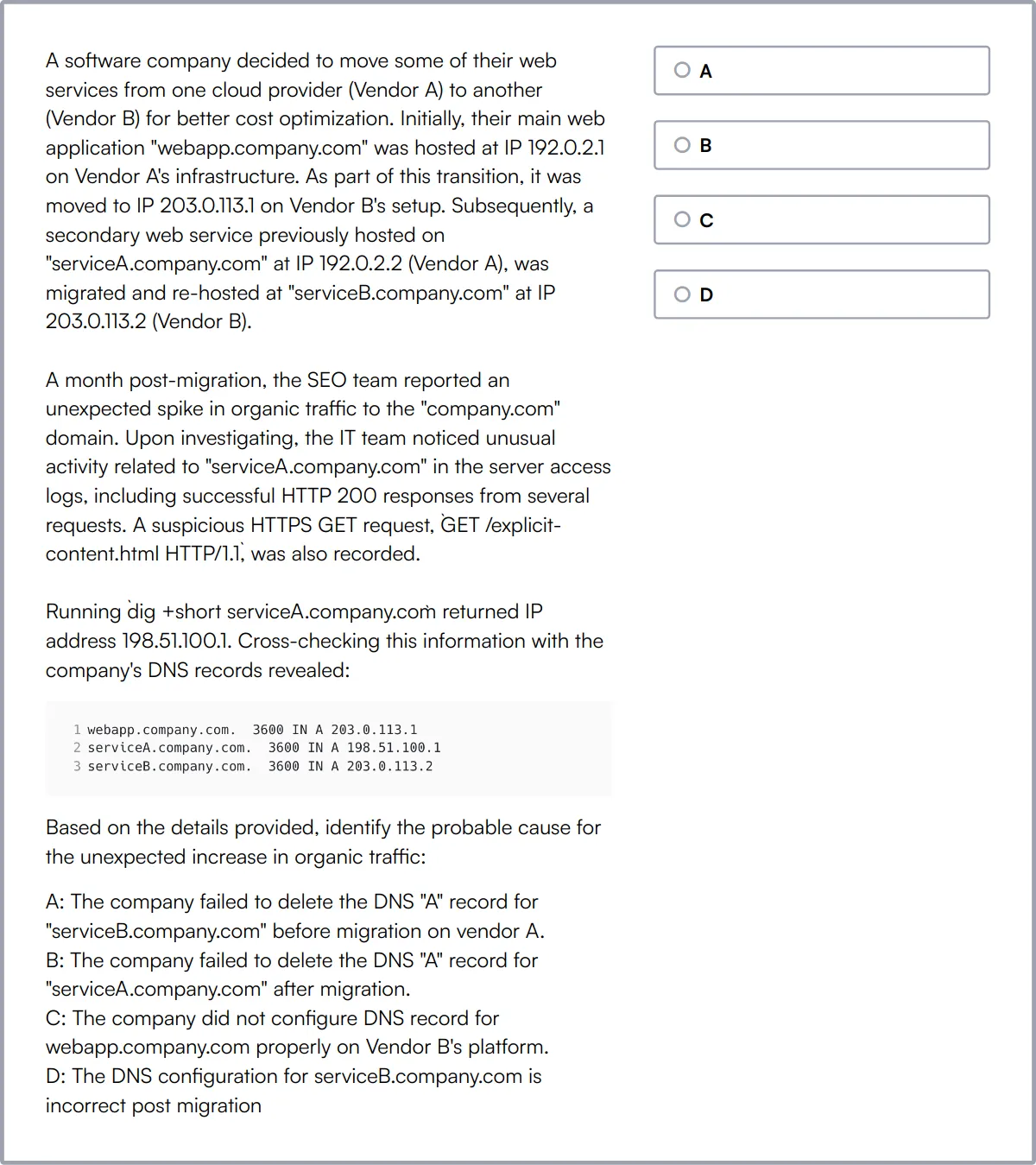
Data Modeling Skills Test
Our Data Modeling Skills Test assesses a candidate's proficiency in database design, SQL, and data integrity practices, focusing on ER diagrams and normalization.
The test covers database schema design, data mapping, validation, and transformation, ensuring candidates can manage and structure data effectively.
Successful candidates will have demonstrated thorough knowledge of data modeling principles and the ability to maintain data accuracy and consistency.
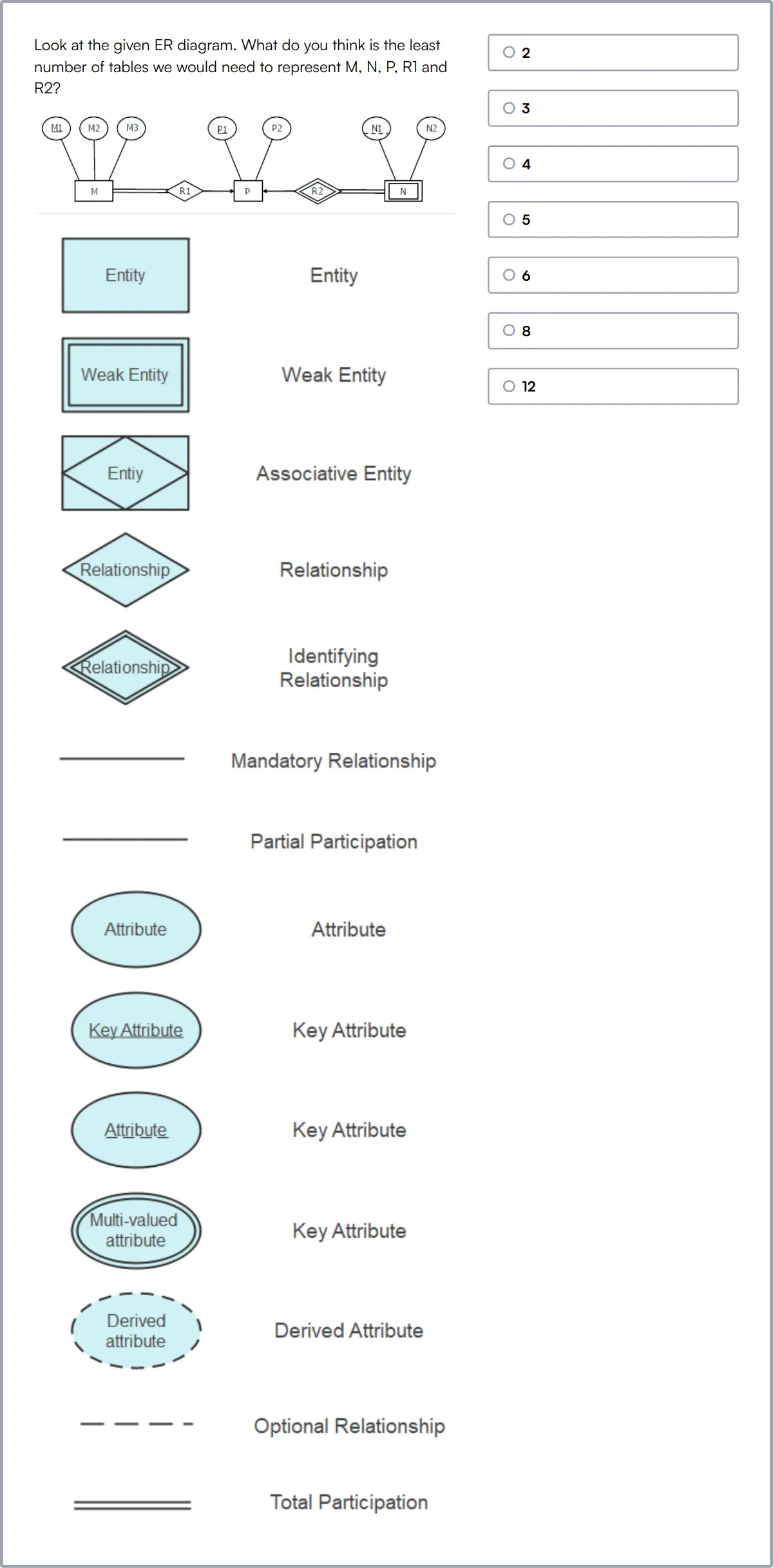
Cloud Computing Online Test
Our Cloud Computing Online Test explores a candidate's knowledge in cloud service and deployment models, virtualization, and cloud security.
It assesses understanding of cloud scalability, storage management, and networking, along with orchestration and automation capabilities.
Candidates excelling in this test show a deep understanding of cloud technologies and the ability to deploy scalable, secure cloud solutions.
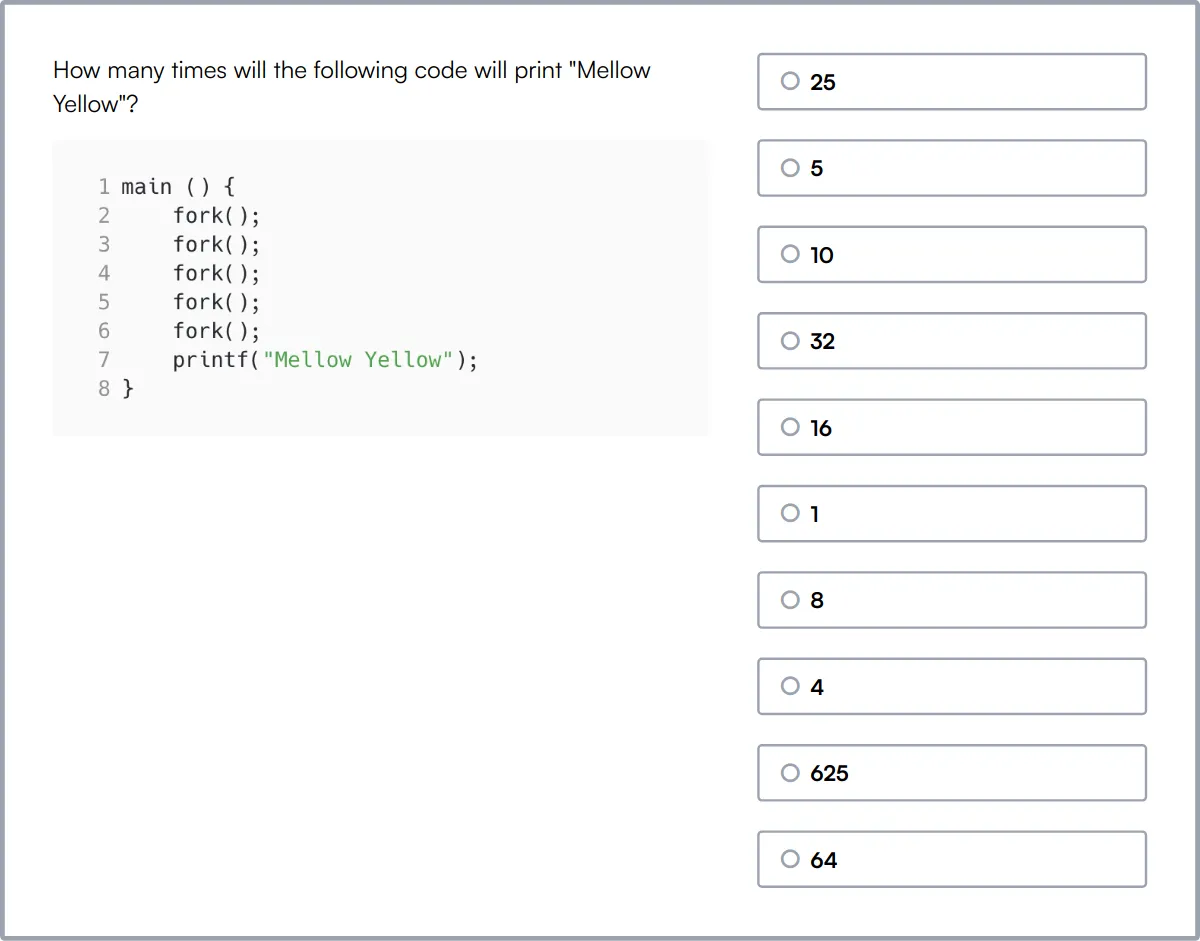
Summary: The 7 key Database Administrator skills and how to test for them
| Database Administrator skill | How to assess them |
|---|---|
| 1. SQL Proficiency | Evaluate candidate's ability to write and optimize SQL queries. |
| 2. Database Security | Assess understanding and implementation of database security measures. |
| 3. Backup Management | Check proficiency in creating and managing data backups. |
| 4. Performance Tuning | Test skills in optimizing database performance and efficiency. |
| 5. Data Modeling | Review ability to design and implement database schemas. |
| 6. Troubleshooting | Determine problem-solving skills in resolving database issues. |
| 7. Replication |
IBM DB2 Database Online Test
Database Administrator skills FAQs
What are the key SQL skills a Database Administrator should have?
A Database Administrator should be proficient in writing complex SQL queries, optimizing queries for performance, and understanding relational database management systems. Knowledge of SQL functions, procedures, and triggers is also important.
How can a recruiter assess a candidate's expertise in database security?
Recruiters can assess database security skills by asking candidates to describe their experience with implementing security measures, such as encryption and access controls. Scenario-based questions about preventing SQL injection and data breaches can also be insightful.
What should a Database Administrator know about backup management?
A Database Administrator should know how to create backup strategies, perform regular backups, and ensure data recovery and integrity. Familiarity with tools like RMAN for Oracle or SQL Server Backup for MS SQL is beneficial.
Why is performance tuning important for a Database Administrator?
Performance tuning is critical to ensure that database systems run efficiently and meet user demands. It involves optimizing SQL queries, adjusting database configurations, and indexing to improve system performance.
How important are cloud databases in today's database management?
Cloud databases are increasingly important due to their scalability, cost-effectiveness, and flexibility. Knowledge of cloud service providers like AWS, Azure, or Google Cloud, along with their specific database services, is highly valuable.
What scripting languages should a Database Administrator be familiar with?
A Database Administrator should be familiar with scripting languages such as Python, Bash, or PowerShell. These skills help in automating routine tasks, data manipulation, and integrating systems.
Can you explain the role of project management in a Database Administrator's job?
Project management is key for Database Administrators as they often lead projects like database upgrades, migrations, or launches. Skills in planning, executing, and monitoring projects are necessary to manage timelines and resources effectively.
What is the significance of communication skills in a Database Administrator's role?
Communication skills are important for Database Administrators to effectively collaborate with IT teams, manage stakeholder expectations, and explain complex technical details to non-technical audiences.

40 min skill tests.
No trick questions.
Accurate shortlisting.
We make it easy for you to find the best candidates in your pipeline with a 40 min skills test.
Try for freeRelated posts
Free resources



